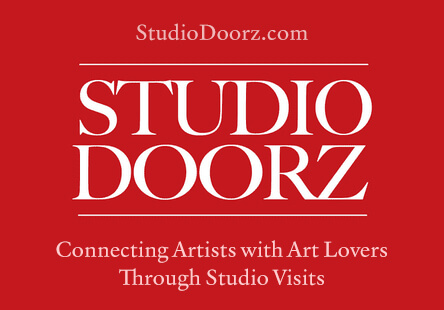Attending art school is something a lot of artists dream about. We know that many artists throughout history have benefited from formal schooling—that’s one reason it’s so desirable. However, not everyone has the opportunity to attend an art school.
So for those of us who don’t have the money or time to get a higher education in art, how close can we get to an art degree through free resources? I think, pretty close.
In each of my upcoming articles I’ll be sharing a lot of free art resources (most of them online) and explaining how to use them to achieve something similar to a traditional art education for free.
For today, I’ll simply be explaining what it will take to make this non-traditional art education a reality—because although there’s no investment of money required, there are other significant investments that need to be made.
The two most important things to remember are:
1. You’ll still need to work hard
An art education is valuable, and getting something valuable for free is always hard.
In a traditional university there would be required coursework for you to follow, resources would be gathered together, and you’d be in an environment that was designed to educate people about art.
At home, it won’t be laid out for you. You’ll have to gather the resources (this series will help) and create the correct environment to learn in.
All of that will take perseverance, determination and a juggling of life and art. And once you’ve conquered the planning, resource, and environment issues, there still remains the material.
Rarely, if ever, do knowledge and experience just fall into a brain. You will first need to understand what you don’t know, and then study it. If you come across ideas that you don’t really understand, you will have to dig deeper to master them.
There won’t be any “real” assignments to force you to work hard. You will simply need to challenge yourself regularly and push yourself through to new levels.
2. You’ll need to be able to use the internet
Today’s internet-linked world allows information to be distributed like never before. . . but you will have to know how to handle it.
You’ll need to be comfortable downloading and listening to podcasts of lectures and videos of demonstrations. Blogging will provide you with a way to journal your progress and interact with other, often global, students.
Research skills and information organization are also important, precisely because there is so much knowledge out there. And staying focused is essential.
Some additional advice for educating yourself online
1. Find a group or buddy to learn with
Generally speaking, people learn better in groups. It almost always helps to have someone else’s perspective around when you’re trying out new concepts.
2. Find a mentor to learn from
The more you can interact with those who know more than you do, the faster and more thoroughly you will learn.
3. Ask a lot of questions
Getting good answers from someone else can save you time and effort. Of course, to get those answers you are going to need people skills, networking skills, and (in our case) some technology skills.
4. Be your own critic
You’re going to have to be your own toughest critic and biggest supporter. You will need to continually look at your own work and spot what could be better. (This a good trait to develop anyway.)
5. Give yourself some time
All learning processes have awkward stages, and occasionally even periods of failure. Accept those for what they are, as stepping stones towards proficiency, and avoid thinking things like, “I can’t do this,” or “I’ll never get where they are,” etc.
What you’ll get in return
Well, you won’t get a real college art degree, a certificate for your studio wall, or a string of letters after your name.
On the other hand, if you read my upcoming articles and do the work you WILL become a more informed artist. Your art (or at least your understanding of your art) will improve. You’ll also be able to converse more deeply with other artists, and give back more to the art community.
You’ll end up with contacts and networks to rely on, and more knowledge about the business of art. You’ll have a broader sense of the art market of today—and where you stand within that market.
You’ll know more about who has come before you, why certain artists are considered great, why the others are not, and whether you agree with those labels or not.
Is all the effort worth it?
There are very few professions these days that don’t require higher-level education. I believe the same is true in the art world: the better-educated you are, the better off your business will be.
If it were possible for me to get an art degree right now, I’d start today. But it’s not—and that isn’t likely to change. So this series is part of my plan. . . and I’m going to do whatever I can to get as close to that sort of education as possible.
Are you interested in joining me? Then make sure you’re signed up for EmptyEasel’s free weekly update and keep an eye out for my next article.
And if you’d like to help contribute, feel free to send in your favorite art resources. I’ll include the ones I can in my upcoming articles.
This post may contain affiliate links.
